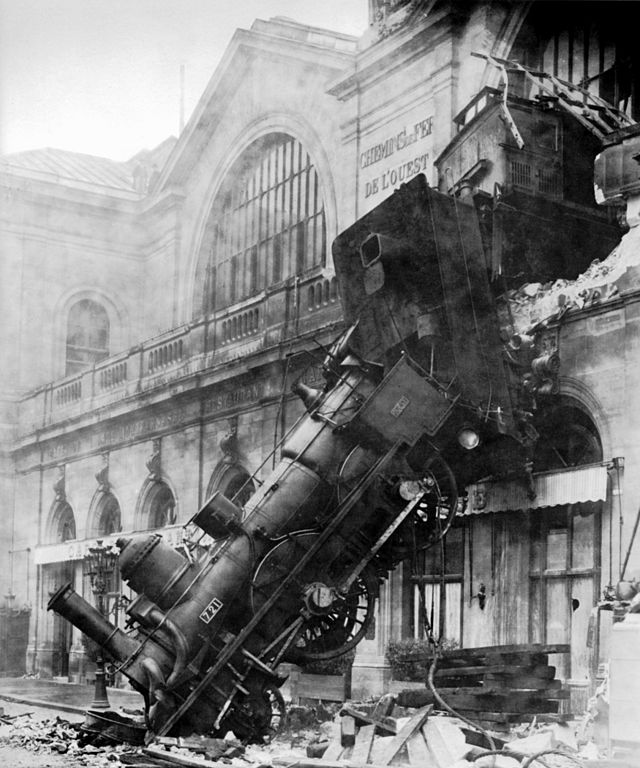
*****
My question is a hypothetical one. What would your response be if Rome issued a statement affirming the homosexual lifestyle (I know homosexuality is a sin along the lines of heterosexual immorality), or for that matter, affirming the ordination of women into the priesthood? I hope you understand where I am coming from?
Yes, a hypothetical. Someone else asked me this recently! :-) Well, I would be extremely distressed and would surely undergo a severe crisis of faith, as I don’t believe this ever would, or could happen (since it hasn’t for 2000 years now). I don’t know how long that would last, but my best guess is that I would still retain my theism and Christianity, and would probably revert to some small intellectual-type, morally-traditional, low-church evangelical denomination, like I used to be in, as the next best option (or perhaps Orthodoxy).
But at the same time I would also recognize that never again would there be the certainty and overall consistency in belief-system that I believe exists within Catholicism. I would have to assume a belief that God couldn’t preserve His Church and His Tradition in unbroken apostolic succession (which we believe to be an analogy to the Incarnation itself), and that the true believers wound up an obscure, pitifully small (sociologically cult-like) remnant, with the great mass of humanity spiritually deluded. I would also have to explain how the Catholic Church lasted so long up to the point of apostasy, and how and why it happened now.
***
In answer to the question posed in the subject you said, in brief, that you would have to re-think your position as a Catholic. Can I say that you would not have to, that popes have made mistakes before and that Jesus guarantees the Church in her teaching.
Of course. That is the view of faith, which I assuredly possess. Popes can indeed err (even be personal heretics), but not in infallible statements binding the whole Church. I was responding, however, from a hypothetical, philosophical perspective, in response to some Protestant friends. There is nothing improper or “unfaithful” in that endeavor.
We would have to live through some awful doubts and hard years but, to quote a priest I know, “the truth does not confuse”.
Agreed.
For instance what if John Paul II announced in tomorrow morning’s news that the first woman priest would be ordained next Easter? You could describe such an event as cataclysmic in doctrinal terms, much less important than accepting homosexuality, tho’ not necessarily as bad in so far as homosexual activity embraces sin. One is an area of morals, the other an area of faith.
But women’s ordination has never been practiced by the Apostolic Christian Church, so this would be a radical departure from biblical and traditional precedent – hence practically as disastrous in its implications.
Remember poor Liberius who acceded to Arian pressures? I seem to recall that he banished Athanasius but I’d need to check. My point is that the pope although he can make infallible statements it seems there must be some test which can be applied to these statements. I think that test is exercised in the college of bishops. What do you say?
I say that such a notion (called “conciliarism” – if I understand you correctly) is heretical and contrary to the definition of papal infallibility from Vatican I, which declares that: “such definitions of the Roman Pontiff are of themselves, and not from the consent of the Church, irreformable.”
*
The weakness in my argument would seem to be that many bishops disagree with the holy father on some issues which we accept as being irreformable, or infallible, for example, abortion, artificial contraception, women’s ordination. What test do we apply now?
We apply the constant and universal teaching of the Church, particularly papal encyclicals, which condemn all three propositions unequivocally (and very recently, too, in these instances). “Majority vote” at any given time is irrelevant vis-a-vis Catholic magisterial teaching. That is pure Protestsant congregationalism, in my opinion.
In this I’d suggest the good old-fashioned sensus fidelium. Have I got the Latin right, I’m a relatively new Catholic?
Yes. But the “sense of the faithful” can never contradict true Church Tradition – that is the cogent point here. The stress is on the word “faithful.” A faithful Catholic would not have accepted the ordination of women, contraception, or abortion in the first place because all have been clearly and constantly condemned by the infallible ordinary Magisterium.
Cardinal Newman (to whom we largely owe the renewed emphasis on this concept), when it was implied that his tract On Consulting the Faithful in Matters of Doctrine meant that infallibility lay with the laity rather than the hierarchy, replied:
The idea conveyed by ‘consulting’ is not necessarily that of asking an opinion. For instance, we speak of consulting a barometer about the weather. The barometer does not give us its opinion, but ascertains for us a fact . . . I had not a dream of understanding the word . . . in the sense of asking an opinion. (Letters and Diaries, vol. 19, p. 135)
*
That’s why I don’t think it would happen. The important distinction to bear in mind is between theological and philosophical certainty.
***
(originally 1997)
Photo credit: Train wreck at Montparnasse Station, Paris, France, October 1895 [public domain / Wikimedia Commons]
***












